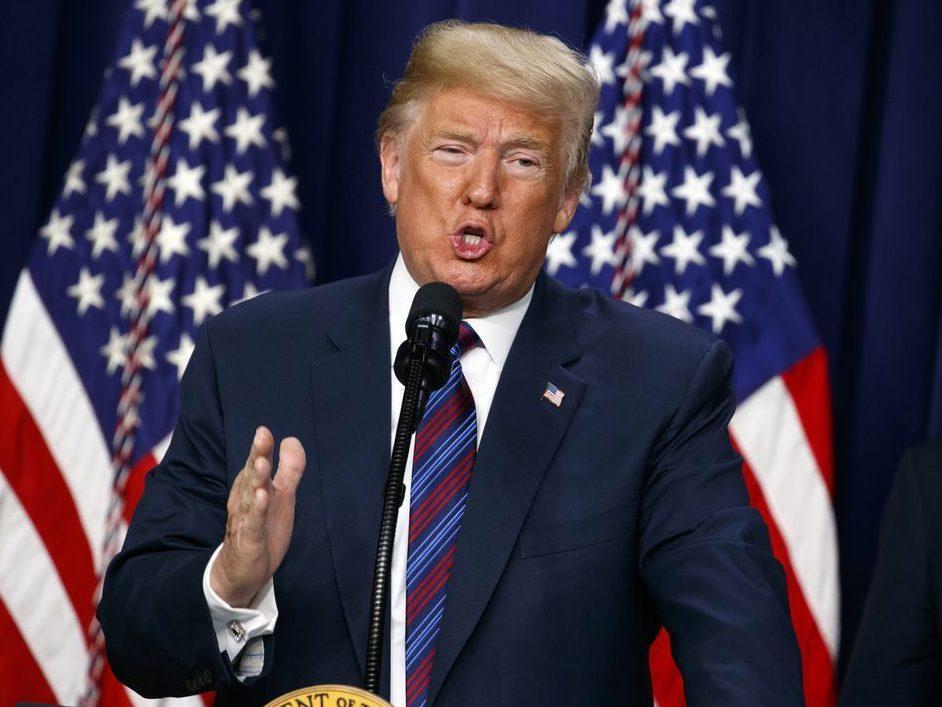Administration proceeds with steel and aluminum tariffs announced in March
Developments on Day 497 of the Trump Administration:
See also VideoCast: “Y’all, We Need to Have An Honest Chat – Trump Lies”
Trump Labels Canada, Mexico, and EU as Security Threats
Launching a trade war with US allies, the Trump Administration announces the imposition of a 25% steel tariff and 10% aluminum duty on Canada, Mexico, and European countries.
The Administration said on Thursday that it will implement the tariffs, announced in early March but temporarily suspended over the political fallout and legal issues.
See also VideoCast: Trump Imposes Tariffs on Canada, Mexico, & European Allies
Canada — the largest exporter of steel to the US — Mexico, and the European Union quickly said that they will respond with their own tariffs, most targeting US areas where Donald Trump has his strongest political support.
Trump had suddenly announced the steel and aluminum duties, reportedly ordering protectionist advisors — who had pressed their case for months — to proceed amid his frustration over the Trump-Russia investigation and the departure of his confidante, White House Communications Director Hope Hicks. But protests by US allies — including South Korea,
Japan, Brazil, and Australia as well as North American and European partners — and concerns about violation of the North American Free Trade Area soon led the Administration to announce the possibility of exemptions.
Brazil and the Asian countries appear to have had those exemptions reconfirmed after agreeing limits on their exports, but the Administration — reportedly seeking leverage to renegotiate NAFTA and get European concessions — said on Thursday that duties on the others will be imposed from June 30.
White House officials insisted:
[The tariffs] have already had major, positive effects on steel and aluminum workers and jobs and will continue to do so long into the future. At the same time, the Trump administration’s actions underscore its commitment to good-faith negotiations with our allies to enhance our national security while supporting American workers.
Canada, Mexico, and the EU were further angered because the US employed a little-used national security provision to implement the tariffs, thus portraying long-standing political and military allies as dangers. Commerce Secretary Wilbur Ross repeated the line yesterday, “We take the view that without a strong economy, you can’t have strong national security.”
German Chancellor Angela Merkel called the tariffs “illegal” and said, “The measures carry the threat of a spiral of escalation that will result in damaging everyone.” Canadian Prime Minister Justin Trudeau said it was “inconceivable” that Canada “could be considered a national security threat”.
US businesses expressed concern over higher costs for their inputs and damage to long-standing arrangement. Rufus Yerxa, the President of the National Foreign Trade Council, said:
For the first time in generations, we’ve really thrown out the rule book with our best trading partners. We can’t expect them to continue business as usual with us if we are throwing out the rules. So that means everything from airplanes to agriculture is on the chopping block.
The United Steelworkers union, which represents members in Canada as well as the US, said the decision called “into serious question” the Administration’s trade strategy: “The regular chaos surrounding our flawed trade policies is undermining the ability to project a reasoned course and ensure that we can improve domestic production and employment.”
Some Republican legislators joined the criticism.
“These tariffs are hitting the wrong target,” said Representative Kevin Brady of Texas. “When it comes to unfairly traded steel and aluminum, Mexico, Canada and Europe are not the problem — China is.”
Senator Ben Sasse of Nebraska called the tariffs “dumb”: “Europe, Canada and Mexico are not China, and you don’t treat allies the same way you treat opponents.”
Punishment Rather Than Talks
Canada’s Trudeau had said last week that the broad lines of “a decent win-win-win deal” had been established. He spoke to Trump and offered to travel to Washington so they could work out the final agreement.
But Vice President Mike Pence phoned Trudeau on Tuesday to declare the precondition of a sunset clause, with the pact automatically expiring unless the US, Canada, and Mexico vote to continue it.
“I had to highlight that there was no possibility of any Canadian prime minister signing a Nafta deal that included a five-year sunset clause,” Trudeau said Thursday, “and obviously the visit didn’t happen.”
The EU had offered a limited trade deal. Germany pressed fo renegotiations, but grew wary after Trump announced that he would begin a separate trade investigation into automotive imports.
Canada announced that corresponding tariffs on American exports — including steel, aluminum, and dozens of basic consumer products like ketchup, insecticides, and laundry machines — will go into effect July 1. The goods are worth $12.8 billion, the value of Canadian steel and aluminum exports to the United States in 2017.
Mexico detailed a list of US goods for tariffs, including steel, pork, apples, cranberries, and cheeses.
European officials are preparing a case for the World Trade Organization, and readying levies on an estimated $3 billion of US imports.
“Global trade is not a gunfight at the O.K. Corral,” French Finance Minister Bruno Le Maire said on Thursday after meeting Commerce Secretary Ross. “It’s not about who attacks whom, and then wait and see who is still standing at the end.”

